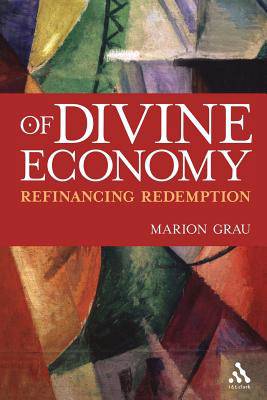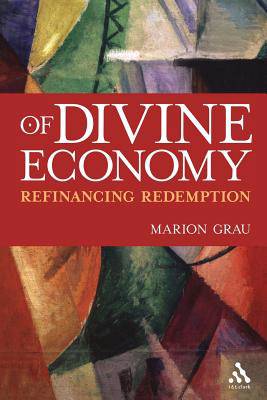
- Afhalen na 1 uur in een winkel met voorraad
- Gratis thuislevering in België vanaf € 30
- Ruim aanbod met 7 miljoen producten
- Afhalen na 1 uur in een winkel met voorraad
- Gratis thuislevering in België vanaf € 30
- Ruim aanbod met 7 miljoen producten
Zoeken
Omschrijving
Divine Economy expands upon the economic connotations of the theological doctrine of redemption. The term redemption refers to a process of ""buying back"" slaves from conditions of oppression and thus compares the crux of Christian dogma to an economic exchange involving human emancipation. The phrase ""miraculous exchanges"" refers to the problem of redemptive divine and human agency in an economic context in which many who desire justice and equity feel powerless and hopeless.
The originality of Divine Economy lies not only in its theological reading of redemption as an economic metaphor, but also in its focus on the economic subtexts of Christian tradition and how they form and are formed by society's economic constructions. Grau's unique project merges together economic, historical, and psycho-social analysis with theological critique and construction.
The originality of Divine Economy lies not only in its theological reading of redemption as an economic metaphor, but also in its focus on the economic subtexts of Christian tradition and how they form and are formed by society's economic constructions. Grau's unique project merges together economic, historical, and psycho-social analysis with theological critique and construction.
Specificaties
Betrokkenen
- Auteur(s):
- Uitgeverij:
Inhoud
- Aantal bladzijden:
- 264
- Taal:
- Engels
Eigenschappen
- Productcode (EAN):
- 9780567027405
- Verschijningsdatum:
- 26/10/2004
- Uitvoering:
- Paperback
- Formaat:
- Trade paperback (VS)
- Afmetingen:
- 154 mm x 231 mm
- Gewicht:
- 421 g

Alleen bij Standaard Boekhandel
+ 305 punten op je klantenkaart van Standaard Boekhandel
Beoordelingen
We publiceren alleen reviews die voldoen aan de voorwaarden voor reviews. Bekijk onze voorwaarden voor reviews.








